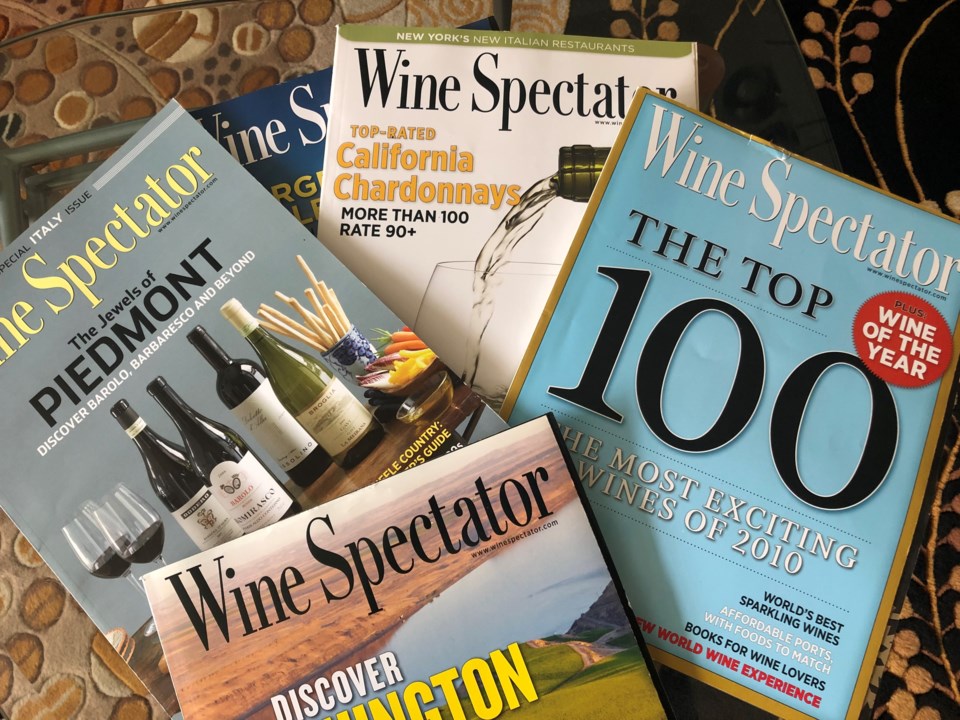Whenever I talk about a wine, I usually mention the wine’s rating and the number of points it got from wine critics. Wine shouldn’t be judged merely by a score – so why are we so obsessed with wine ratings?
Firstly, wine ratings are useful for beginner wine drinkers. There are so many wines available that wine ratings do help narrow down your choices. When I first began drinking wine, I didn’t know how to choose a wine, so the rating helped me decide. Now that I am a more experienced wine drinker, I still look at wine ratings as reference points, but they don’t factor in as much in my selections. As you get to know what you like, personal preference takes precedence over the wine’s rating.
So, is a 95 point wine 5-per-cent better than a 90 point wine? Well, you have to know who is rating the wine. If you only look at a wine score, almost every wine can find someone to give it a decent rating. I suggest that you start by looking at wines rated by a particular wine critic. If you like their recommendations, stick with it. If not, try another wine writer’s recommendations. I follow Wine Spectator and Wine Advocate because they are most well-known and have the greatest coverage of wines and accessible ratings.
Secondly, you have to understand each wine writer’s rating system. ou won’t ever see a wine with a rating of 30 points. This is because no one would buy a wine rated so low and no wine rating system starts that low. The lowest possible rating from Wine Spectator is between 50-74, which are not recommended wines and I’ve never seen such a low rating. A 75-79 point wine is mediocre. Wines in the 90-94 point range are outstanding with superior quality and style. Wine Advocate has a similar rating system.
For me, the best drinking wines are in the 86-89 point range. These wines are better than average but do not have superior qualities. Most 90-93 point wines are good but can sometimes disappoint (since you have a heightened expectation due to the score). Generally, wines rated 95 points or more by either Wine Advocate or Wine Spectator must be aged for several years to realize their maximum drinking potential.
So what do wine ratings mean? To some people, they are just reference points. To wineries, they are important, as higher ratings help them sell their wines. To some people, they mean even more than drinking the wine itself, rather a highly rated wine becomes a trophy.
To me, the real worth of wine ratings is that they start discussions. When you drink a 93 point wine with friends, the rating allows you to share your views on whether the wine deserves that rating. Just like if you were debating with your friends who is the best basketball player ever, or whether Parasite should have won an Oscar, no one is right or wrong. With some wines, everyone will agree it is a great wine. But for most wines, there are various viewpoints, which is the real joy of drinking wines and sharing them with others.
Speaking of highly rated wines, try this one: Penley Estate 2018 Cabernet Sauvignon Phoenix. This wine is from the Coonawarra region in Australia and has lots of dark, juicy fruits with a very smooth aftertaste. It’s a spectacular value at $21.99 a bottle, with a 91 point Wine Spectator rating.
Until next time, happy drinking!
Tony Kwan is the Richmond News' new columnist. Lawyer by day, food and wine lover by night, Kwan is an epicurean who writes about wine, food and enjoying all that life has to offer.



